Films with theme "Films about Latin American military dictatorships", sorted by revenue
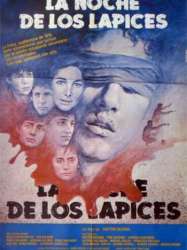
Night of the Pencils (1986)
, 1h45Directed by Héctor Olivera
Genres Drama
Themes Seafaring films, Transport films, Political films, Films about Latin American military dictatorships
Actors Leonardo Sbaraglia, Lorenzo Quinteros
During a time of economic and political unrest and State-sponsored terrorism in Argentina in the mid-1970s, the students want reduced bus fares, so they take to the streets and protest in support of the boleto estudiantil: the students' ticket. At first, under Isabel Martínez de Perón's government they succeed, but their protests draw hostile attention from the ensuing military regime led by Jorge Rafael Videla, which overthrows Perón on March 24, 1976.
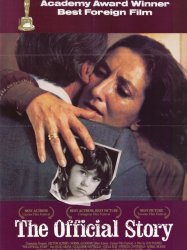
The Official Story (1985)
, 1h52Directed by Luis Puenzo
Origin Argentine
Genres Drama, Historical
Themes Seafaring films, Politique, Transport films, Political films, Films about Latin American military dictatorships
Actors Héctor Alterio, Norma Aleandro, Chunchuna Villafañe, Hugo Arana, Guillermo Battaglia, Pablo Rago
The film is set in Argentina in the 1980s, in the last years of the country's last military dictatorship, during which a campaign of State sponsored terrorism produced thousands of killings and torture of accused political leftists and innocents alike, who were buried in unmarked graves or became desaparecidos.

The Girlfriend (1989)
, 1h50Directed by Jeanine Meerapfel
Origin Argentine
Genres Drama
Themes Seafaring films, Politique, Transport films, Political films, Films about Latin American military dictatorships
Actors Liv Ullmann, Federico Luppi, Víctor Laplace, Harry Baer, Claudio Rissi
María and Pancho (Liv Ullman and Federico Luppi) are a happily married couple in a quiet, working-class suburb south of Buenos Aires, circa 1978. They share the grief over the disappearance of their eldest son Carlos (Gonzalo Arguimbau), with María's lifelong friend Raquel Kessler (Cipe Lincovsky), a feisty Jewish girl whose cultural identity made her a target to some; but all the more endearing to María, her only gentile childhood friend.
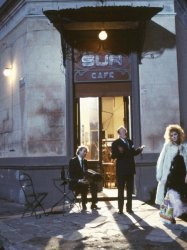
The South (1988)
, 2h7Directed by Fernando Solanas, Gaspar Noé
Origin Argentine
Genres Drama, Musical
Themes Politique, Films about Latin American military dictatorships
Actors Susú Pecoraro, Miguel Ángel Solá, Philippe Léotard, Ulises Dumont, Fito Páez, Gabriela Rosana Toscano
Floreal is released from prison prior to the end of a military coup d'état in 1983. He discovers his wife has cheated on him and is not sure he wants to return to his former life and family. A friend, "El-Negro", who was killed during the military coup, appears in the night with a special mission: to help Floreal face what has happened when he was serving time in prison. El-Negro helps him to live through the important events that happened in his absence. El-Negro helps him get past his anger, understanding how hard it was to endure such a difficult time and how the military coup had crushed people's lives. When El-Negro finally tells him he must return, Floreal realizes he must be strong and, like his coup-stricken country, pick up and go on with his life.
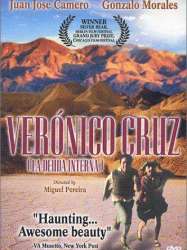
The Debt (1988)
, 1h36Directed by Miguel Pereira
Genres Drama, War
Themes Seafaring films, Transport films, Political films, Films about Latin American military dictatorships
The film is set in the mid 1970s and ends at the time of the 1982 Falklands War (Spanish: Guerra de las Malvinas/Guerra del Atlántico Sur) between Great Britain and Argentina.
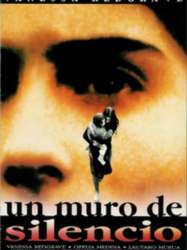
A Wall of Silence (1993)
, 1h47Genres Drama
Themes Seafaring films, Transport films, Political films, Films about Latin American military dictatorships
Actors Vanessa Redgrave, Ofelia Medina, Lautaro Murúa, Lorenzo Quinteros, Soledad Villamil, André Melançon
Kate (Redgrave) is a British film director on location in Argentina that traces the story of Silvia (Medina). Silvia has a dark past, stemming from the turbulent time when she endured her husband's forced disappearance during the Dirty War. Silvia wants to move on with her life and concentrate on her family. But she is eventually persuaded into reliving her painful past.
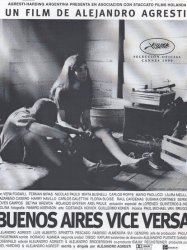
Buenos Aires Vice Versa (1996)
, 2h2Directed by Alejandro Agresti
Themes Seafaring films, Transport films, Political films, Films about Latin American military dictatorships
Actors Nicolás Pauls, Carlos Roffé, Carlos Galettini, Lorenzo Quinteros, Alejandro Agresti
Opening Title Graphic: As the film begins a message appears and reminds the audience that approximately 30,000 people died during the Dirty War due to the military dictatorship's reign during the late 1970s and early 1980s.

La cara del ángel (1999)
, 1h32Genres Drama
Themes Seafaring films, Transport films, Political films, Films about Latin American military dictatorships
Actors Enrique Pinti
The story takes place during the period of the ruling military junta in Argentina from the mid-seventies to the early eighties, focusing on one particular family. The story is told from the viewpoint of Nicolas, a young boy.
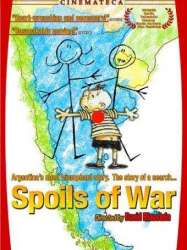
Spoils of War (2000)
, 1h58Genres Documentary
Themes Seafaring films, Transport films, Documentary films about politics, Political films, Films about Latin American military dictatorships
 , 1h35
, 1h35Directed by Mariano Barroso
Genres Drama, Thriller, Historical, Romance
Themes Seafaring films, Transport films, Political films, Films about Latin American military dictatorships
Actors Salma Hayek, Edward James Olmos, Mía Maestro, Demián Bichir, Lumi Cavazos, Pilar Padilla
The film begins showing pictures and films of the actual victims of Rafael Trujillo.

The Lost Steps (2001)
, 1h33Genres Drama
Themes Seafaring films, Transport films, Political films, Films about Latin American military dictatorships
Actors Federico Luppi, Concha Velasco, Paulina Gálvez, Ricardo Arroyo
The film tells the story of Mónica Erigaray (Irene Visedo), who is twenty years old and lives with her parents Ernesto Erigaray (Luis Brandoni) and Inés (Concha Velasco). Seventeen years ago the Erigarays left Argentina and moved to Spain to live a peaceful and quiet life.
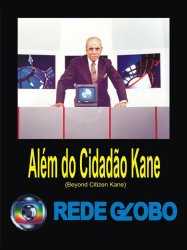
Beyond Citizen Kane (1993)
, 1h45Origin United-kingdom
Genres Documentary
Themes Seafaring films, Transport films, Documentary films about business, Documentary films about law, Documentary films about politics, Political films, Films about Latin American military dictatorships
The documentary tracks Globo's involvement with and support of the military dictatorship; its illegal partnership of the 1960s with the American group Time Warner (at the time Time-Life); Marinho's political manoeuvrings (which included airing on Jornal Nacional, the network's prime time news program, highlights of a 1989 presidential debate edited in a way as to favour Fernando Collor de Mello); and a controversial deal involving shares of NEC Corporation and government contracts. It features interviews with 21 people, including noted Brazilian politicians and cultural figures, such as politicians Leonel Brizola and Antonio Carlos Magalhães, singer-songwriter Chico Buarque, former Justice Minister Armando Falcão, politician Luiz Inácio Lula da Silva, who later was elected as president; and former employees Walter Clark and Armando Nogueira.
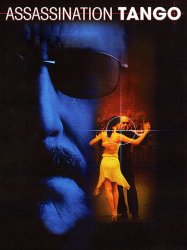
Assassination Tango (2004)
, 1h54Directed by Robert Duvall
Genres Drama, Thriller, Romance
Themes Seafaring films, Politique, Transport films, Political films, Films about Latin American military dictatorships
Actors Robert Duvall, Rubén Blades, Kathy Baker, Luciana Pedraza, Julio Oscar Mechoso, Michael Corrente
Anderson (Duvall) is a successful American hitman whose employer sends him to do a job in Argentina. His contacts inform him that his target is a former general. Following a meeting with one of the co-conspirators, Anderson hears music and is shown a tango studio. He is immediately entranced by the dancing and wants to learn more about it, which leads to his meeting with Manuela, a local tango dancer and instructor. Things are not as easy as they seem. Anderson learns that the assassination job will be delayed, due to his target sustaining an injury in a riding accident. A paranoid Anderson simultaneously rents a room in two different hotels. From the safety but close proximity of one hotel room, he witnesses police converge on the other hotel. Anderson will fulfill his obligation to do the job despite the obvious reality that there is a leak. In the meantime, Anderson begins to immerse himself in the world of the tango, while balancing his plans to carry out the hit. We witness the conspirator Miguel (Rueben Blades) being harshly interrogated by Buenos Aires police. Miguel can eventually breathe a sigh of relief when his conspirator within the Argentinian federal authorities shows up. Anderson (Duvall) eventually makes it out of Argentina safely.
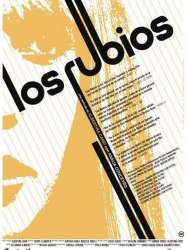
The Blonds (2003)
, 1h29Directed by Albertina Carri
Origin USA
Genres Documentary
Themes Seafaring films, Transport films, Documentary films about politics, Political films, Films about Latin American military dictatorships
Actors Albertina Carri
The film deals with a child, whose parents were among the tens of thousands of Argentines who were murdered during the military junta's Dirty War, who years later has to contend with the pain barely remembered.
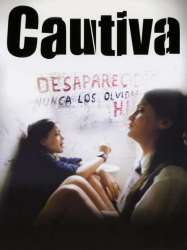
Cautiva (2004)
, 1h55Genres Drama
Themes Films about adoption, Films about children, Films about families, Seafaring films, Transport films, Political films, Films about Latin American military dictatorships
Actors Hugo Arana, Susana Campos
Cristina Quadri (Barbara Lombardo) is the model of a perfect student. Smart and affluent, her life is in perfect order until, one day, she is called from her class and made to appear in front of a judge. The judge informs her that her biological parents disappeared in the 1970s. Cristina is forced to go live with her grandmother, Elisa (Susana Campos), who has spent the past 16 years attempting to locate Cristina (whose birth name was Sofia). Although, at first, she is hurt, bitter and confused, Cristina/Sofia eventually grows to care for Elisa and begins to research the fate of her parents - and how much her adoptive parents knew of the truth.
 Connection
Connection